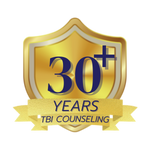Recovering from a traumatic brain injury (TBI) is more than physical—it’s a journey of emotional, cognitive, and social rediscovery. For individuals navigating this path, behavioral therapy has become a beacon of hope. With tailored strategies and measurable outcomes, it equips TBI survivors to overcome challenges and thrive in their new reality. Here’s how behavioral therapy is making waves in the TBI community.
Healing Beyond the Injury
- TBI often comes with unforeseen emotional and mental hurdles, such as mood swings, frustration, and depression. Behavioral therapy offers tools to tackle these challenges head-on:
- Rewiring thought patterns with Cognitive Behavioral Therapy (CBT), replacing negative thoughts with constructive ones.
- Building emotional resilience through techniques that promote self-awareness and stress management.
- Setting achievable milestones to foster a sense of accomplishment and positivity.
- By addressing the emotional layers of recovery, behavioral therapy empowers individuals to regain control over their mental well-being.
Rediscovering the Social Self
After a TBI, social interactions can feel like uncharted territory. Behavioral therapy bridges this gap by equipping survivors with tools for meaningful connections:
- Enhanced communication techniques that cater to changes in speech or cognition.
- Rebuilding social confidence through role-playing exercises and gradual reintegration into community settings.
- Finding peer support in Group therapy where shared experiences create a sense of belonging.
- The ripple effect? Stronger relationships and a rejuvenated social identity.
Reigniting Cognitive Abilities
Cognitive challenges—such as memory loss, attention deficits, or slowed processing speed—are common after a TBI. Behavioral therapy helps sharpen these skills through:
- Memory-enhancing exercises, such as creating visual associations or using repetition techniques.
- Focus on building tasks from structured mental exercises to mindfulness practices.
- Problem-solving strategies that empower decision-making and adaptability.
- The result is a more confident approach to tackling daily tasks and long-term goals
Empowering Day-to-Day Independence
Independence is often redefined after a TBI. Behavioral therapy provides practical solutions to navigate this shift with confidence:
- Introducing organizational tools (e.g., digital planners, alarms) for daily task management.
- Developing adaptive approaches to overcome physical and cognitive limitations.
- Celebrating progress with incremental goals that reinforce self-reliance.
Each success, no matter how small, becomes a stepping stone to regaining autonomy.
A Lifeline for Caregivers
Caregivers are the unsung heroes in the journey of recovery from TBI. Yet, their well-being is just as critical. Behavioral therapy extends its benefits to caregivers by:
- Teaching stress management techniques to prevent burnout.
- Offering communication tools for clearer and more effective interactions with the TBI survivor.
- Creating a safe space for emotional expression and support.
This dual approach fosters a healthy, balanced dynamic for both survivors and their caregivers.
A Personalized Approach to Growth
What sets behavioral therapy apart is its adaptability. Every TBI survivor’s journey is unique, and therapy evolves to meet individual needs. Whether it’s cultivating emotional resilience, reigniting cognitive skills, or rebuilding relationships, the focus remains on empowering individuals to achieve their full potential and thrive.
A Journey of Rediscovery
Behavioral therapy is more than a clinical intervention—it’s a partner in the journey of self-discovery and healing. For the TBI community, it serves as a beacon of hope, providing a pathway to purpose, connection, and strength.
With dedication, guidance, and proper support, TBI survivors can chart a future defined not by limitations but by possibilities. Behavioral therapy proves that recovery isn’t about returning to the past but embracing the future.
Early intervention is crucial to recovery for traumatic brain injury (TBI) survivors. The sooner individuals receive support and resources, the better their chances of regaining independence and improving their quality of life. WBC Counseling offers specialized services tailored to the unique needs of TBI survivors. Take the first step toward recovery—contact WBC Counseling today.
If you or someone you know is affected by a brain injury, remember that you are not alone. There are resources and communities ready to offer support and guidance. Brain Injury Association of Michigan.






































